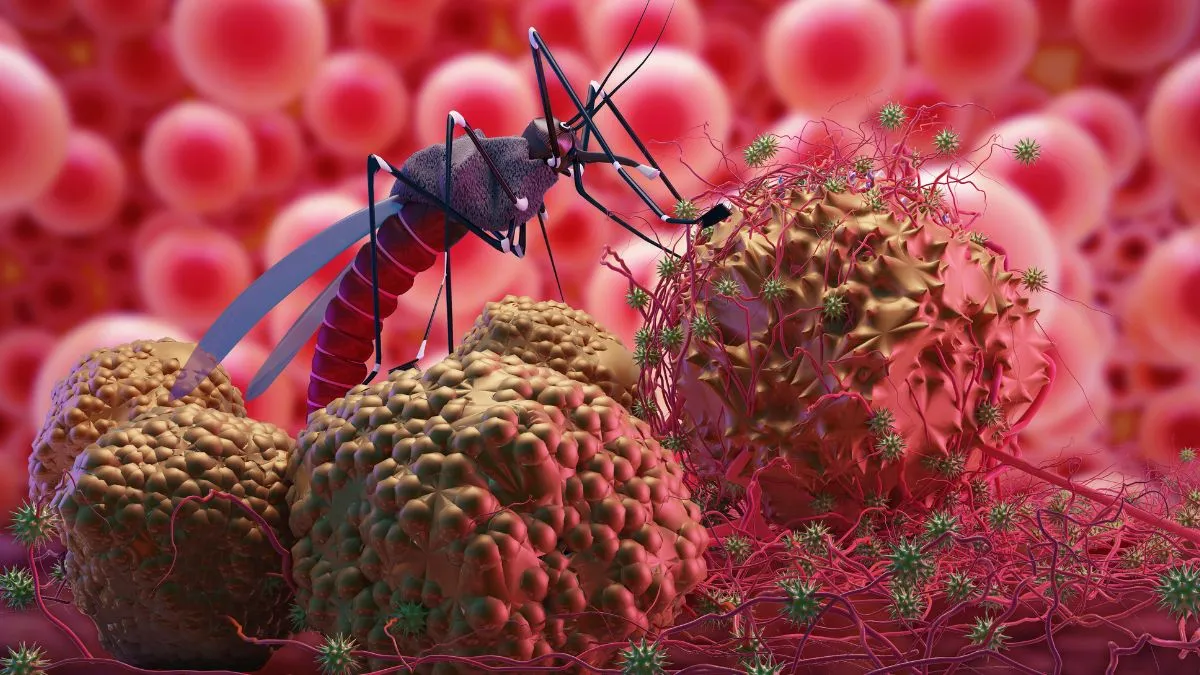- By Iram Hussain
- Thu, 24 Apr 2025 06:52 PM (IST)
- Source:JND
Cerebral malaria is a severe form of malaria that affects the central nervous system primarily caused by the Plasmodium falciparum parasite. This condition is most prevalent in sub-Saharan Africa and also cases in India. It poses a significant threat, especially to children under five, pregnant women and immunocompromised adults. Understanding cerebral malaria is crucial in the fight against malaria-related deaths and long-term neurological impairments.
In a conversation with Jagran English, Dr. Pankaj Soni, Principal Director - Internal Medicine, Fortis Hospital, Vasnt Kunj explained about cerebral malaria.
Cerebral Malaria
Causes And Transmission
Cerebral malaria is transmitted through the bites of infected Anopheles mosquitoes. Once the parasite enters the bloodstream, it can invade red blood cells, leading to severe complications. The symptoms of cerebral malaria typically arise when the infection is not adequately treated and advances to a critical stage.
Symptoms
Symptoms of cerebral malaria often include-
1. High fever
2. Severe headaches
3. Seizures
4. Confusion or altered consciousness
5. Difficulty in breathing
6. Coma in severe cases
Diagnosis
The diagnosis typically involves a combination of clinical assessments and laboratory tests. A blood smear or rapid diagnostic test can confirm the presence of Plasmodium falciparum. Moreover, healthcare providers might conduct imaging studies such as Lumbar Puncture, CT or MRI scans to assess brain involvement and exclude other neurological conditions.
Treatment
Immediate medical attention is crucial for cerebral malaria. The primary treatment consists of intravenous antimalarial drugs, such as artesunate, which are highly effective against severe malaria. Supportive care including maintaining hydration and managing complications is equally important.
Prevention
Preventing cerebral malaria involves controlling mosquito populations and minimising exposure. Common measures include-
- Using insecticide-treated bed nets
- Applying mosquito repellent
- Ensuring proper sanitation and housing structures
- Vaccination efforts are underway with the RTS, S malaria vaccine being a significant development in prevention strategy once licensed for clinical use.
ALSO READ: What Causes Malaria In Summer? Doctor Explains Major Risk Factors
